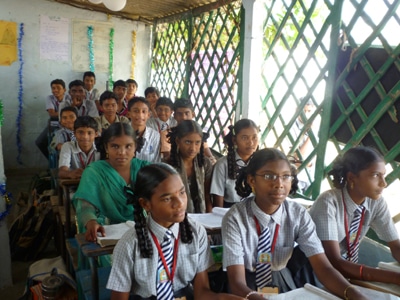 The New Year is around the corner. However, for most parents, the revelry is short-lived more than often. The primary reason behind this phenomenon is the list of worries that bother them regarding their child’s well being. On top of this list are the issues revolving around the availability, accessibility and affordability of quality education for their kids. Though the government schools have, to a large extent, tried and managed to address the issue of affordability, there are huge gaps when it comes to the issue of access and quality. This is where private initiatives, missionaries, philanthropic bodies and civil society organisations have, over the years, contributed their bit.
The New Year is around the corner. However, for most parents, the revelry is short-lived more than often. The primary reason behind this phenomenon is the list of worries that bother them regarding their child’s well being. On top of this list are the issues revolving around the availability, accessibility and affordability of quality education for their kids. Though the government schools have, to a large extent, tried and managed to address the issue of affordability, there are huge gaps when it comes to the issue of access and quality. This is where private initiatives, missionaries, philanthropic bodies and civil society organisations have, over the years, contributed their bit.
There is no denying the fact that the private school revolution has gripped India for decades now. However, there are questions that remain about their ability and success in imparting education the way it is meant to be. There are ample examples of private schools having turned into profit milking machines. Exorbitant fee structures and lack of focus on academic excellence and character building have raised doubts over the efficacy and credibility of these schools.
One may tend to brush these issues aside in view of lack of options, but these issues merit our undivided attention and deliberation. School education is one of the most crucial years that determine the future of children and the impact they are likely to have on the future of the nation and society.
Private schools have emerged out of the failure of the government to address the huge demand for education in the country. There is no denying that most of these schools have done a good job while keeping their moral fabric intact. Discipline, individual attention and a safe environment have also been their merits. However, in the changing contours of the global knowledge society, one is tempted to ask where it is leading us.
Sample the following:
- UNESCO estimates 1 billion people are still likely to be extremely poor in 2015 and globally 57.8 million children are still out of primary school.
- India has managed a literacy rate of 74.04 per cent as against 64.8 per cent in the previous census operations in 2001. This however does not imply that all of them have attended school.
- According to one estimate, 4 per cent of India’s children never start school, about 58 per cent complete primary education and 90 per cent don’t finish school.
- UNESCO estimates India needs 4 million teachers to keep children in classrooms
- Numerous other reports have pointed that much of emerging India can’t read or do maths and that going to school is not same as learning.
- At the primary and secondary level, India has a large private school system complementing the government run schools, with 29 per cent of students receiving private education in the 6 to 14 age group.
So, the question is – where are we, as a nation, heading? Have lack of options molded our minds to an extent that we oversee follies? Or, have private schools actually managed to provide for the quality of education that children need to be future ready? What is your take? Share it with us and let people know what you feel about this crucial issue. We look forward to your views.



















